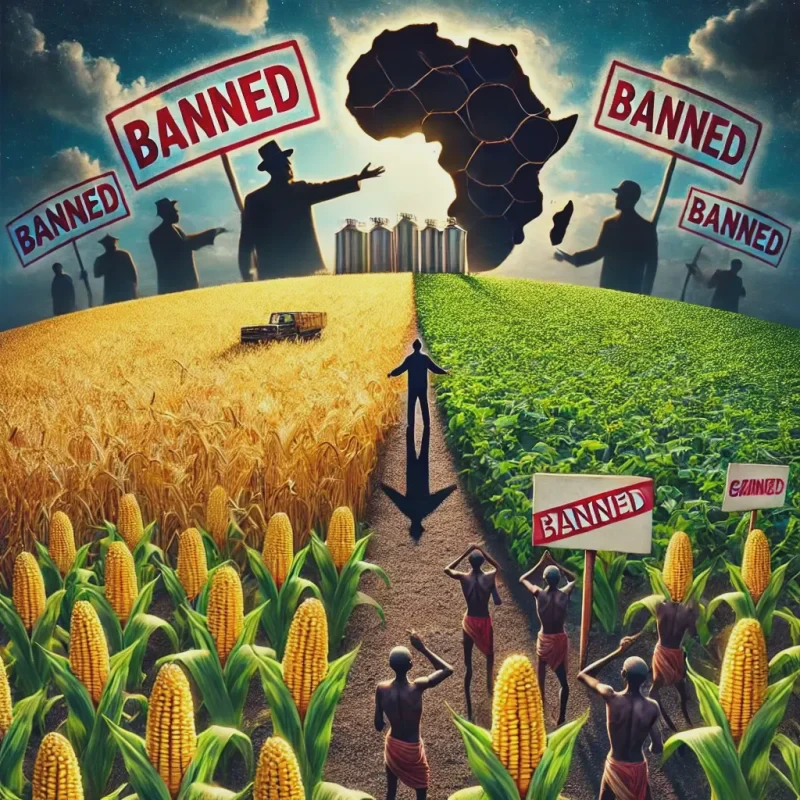Viewpoint: GMOs are scapegoated by activists and blamed for encouraging the world to skirt global food and agriculural challenges
Viewpoint: GMOs are scapegoated by activists and blamed for encouraging the world to skirt global food and agriculural challenges


The debate around GMOs entails far more than scientific facts: GMOs have become a proxy for many socio-economic issues such as patents, monopolies, food security, and others. We discuss these issues in a prior post. In this post, we focus on the science and safety of genetically engineered crops.
…
There are many legitimate socioeconomic concerns about our food supply and unfortunately, GMOs have become scapegoats for many of these issues: patents, monopolies, monocultures, environmental concerns, and many others. […]
GMOs are not one thing but there are legitimate concerns with specific traits. For example, proper stewardship is not always practiced with insecticide and herbicide-related traits. Over-reliance on glyphosate-tolerant crops has increased the number of glyphosate-tolerant weeds, although herbicide-tolerant weeds is a risk with any herbicide use, and the incidence of glyphosate-tolerant weeds is not as dire as widely reported. […]
Another problem we may see more of in the coming years is that some traits are associated with dubious health benefits. For example, the non-browning potato also has decreased amounts of acrylamide […] though the actual risk from acrylamide is low. A pink pineapple with extra antioxidants was recently made available in the US [yet] the benefits of extra antioxidants has not been conclusively demonstrated.
Surveys have examined public opinion vs opinion of scientists on various topics. The topic where there was the greatest discrepancy between what the public believes and what scientists believe is GMOs. Scientists generally find biotechnology to be a safe method of crop breeding, while non-scientists largely believe they are unsafe.
Our choice to shun safe food is a luxury. However, this has repercussions, particularly that we cannot afford to wait any longer before developing crops that are suitable for the growing number of pests and harsher weather that result from a changing climate. We must bear in mind that the people who will be impacted most are people who have little voice in these discussions.
This is an excerpt. Read the original post here

 | Videos | More... |

Video: Nuclear energy will destroy us? Global warming is an existential threat? Chemicals are massacring bees? Donate to the Green Industrial Complex!
 | Bees & Pollinators | More... |

GLP podcast: Science journalism is a mess. Here’s how to fix it

Mosquito massacre: Can we safely tackle malaria with a CRISPR gene drive?

Are we facing an ‘Insect Apocalypse’ caused by ‘intensive, industrial’ farming and agricultural chemicals? The media say yes; Science says ‘no’
 | Infographics | More... |

Infographic: Global regulatory and health research agencies on whether glyphosate causes cancer
 | GMO FAQs | More... |

Why is there controversy over GMO foods but not GMO drugs?

How are GMOs labeled around the world?

How does genetic engineering differ from conventional breeding?
 | GLP Profiles | More... |

Alex Jones: Right-wing conspiracy theorist stokes fear of GMOs, pesticides to sell ‘health supplements’




 From plastic coasters to human hearts: Inside the race to print the human body
From plastic coasters to human hearts: Inside the race to print the human body A single high dose of LSD can ease anxiety and depression for months
A single high dose of LSD can ease anxiety and depression for months CRISPR pork: U.S. approves first gene-edited pigs for consumption
CRISPR pork: U.S. approves first gene-edited pigs for consumption ‘SuperAgers’: Why some people have the brains and memory capacity of people decades younger
‘SuperAgers’: Why some people have the brains and memory capacity of people decades younger  Baby food panic, brought to you by trial lawyers hoping to prosecute by press release
Baby food panic, brought to you by trial lawyers hoping to prosecute by press release Viewpoint: Life and death decisions: RFK, Jr.’s shady FDA “expert panels” operate in secret with no transcripts or conflict of interest reviews
Viewpoint: Life and death decisions: RFK, Jr.’s shady FDA “expert panels” operate in secret with no transcripts or conflict of interest reviews From ‘Frankenfood’ to superfood: Can the purple tomato overcome GMO myths to win over consumers?
From ‘Frankenfood’ to superfood: Can the purple tomato overcome GMO myths to win over consumers? When farmers deny science: The hypocrisy hurting agriculture’s credibility
When farmers deny science: The hypocrisy hurting agriculture’s credibility
